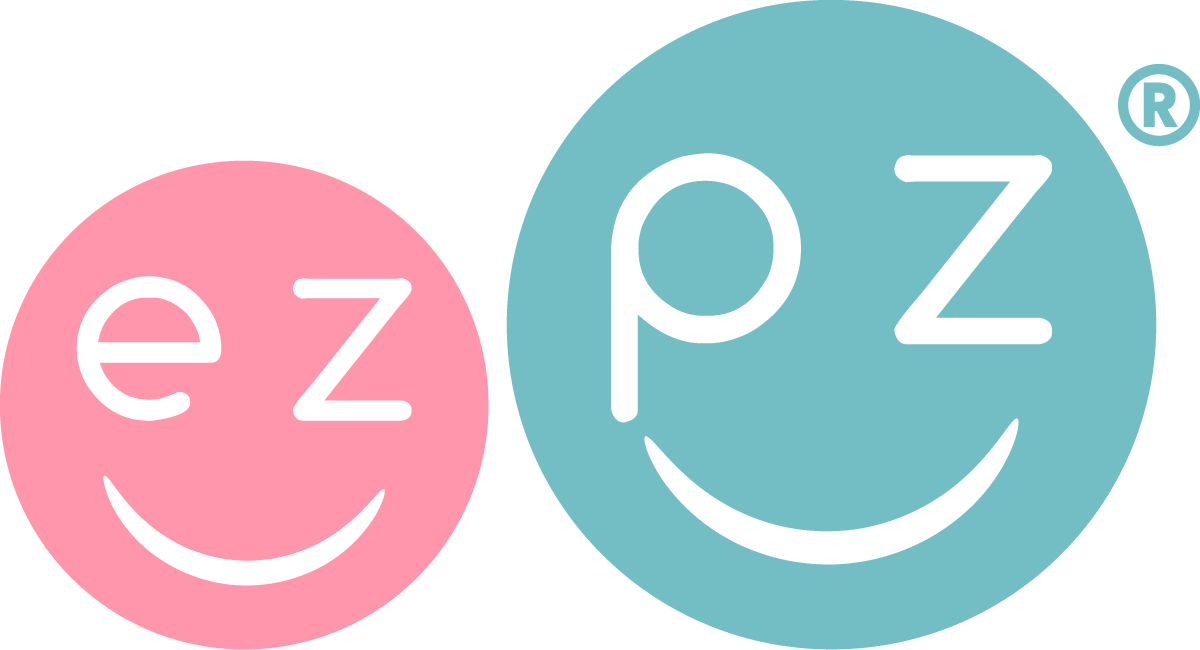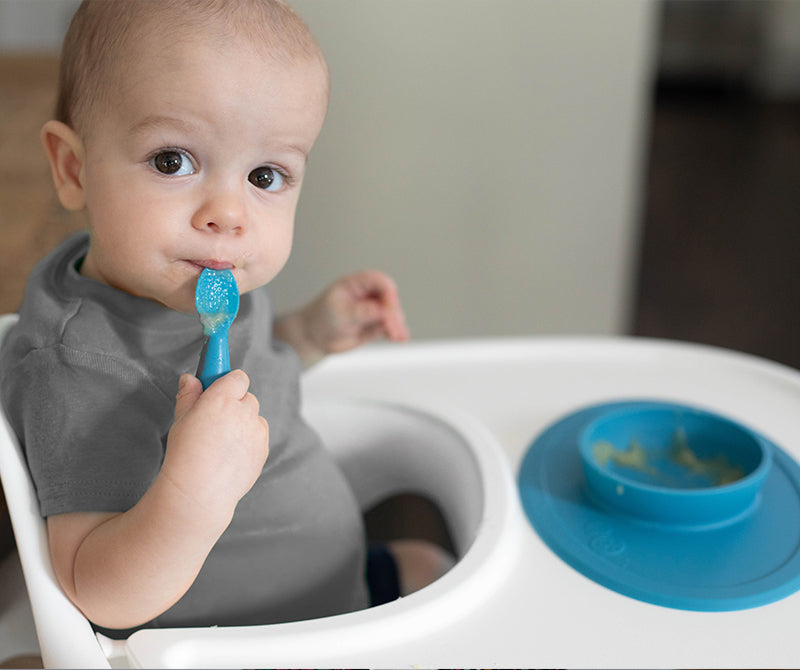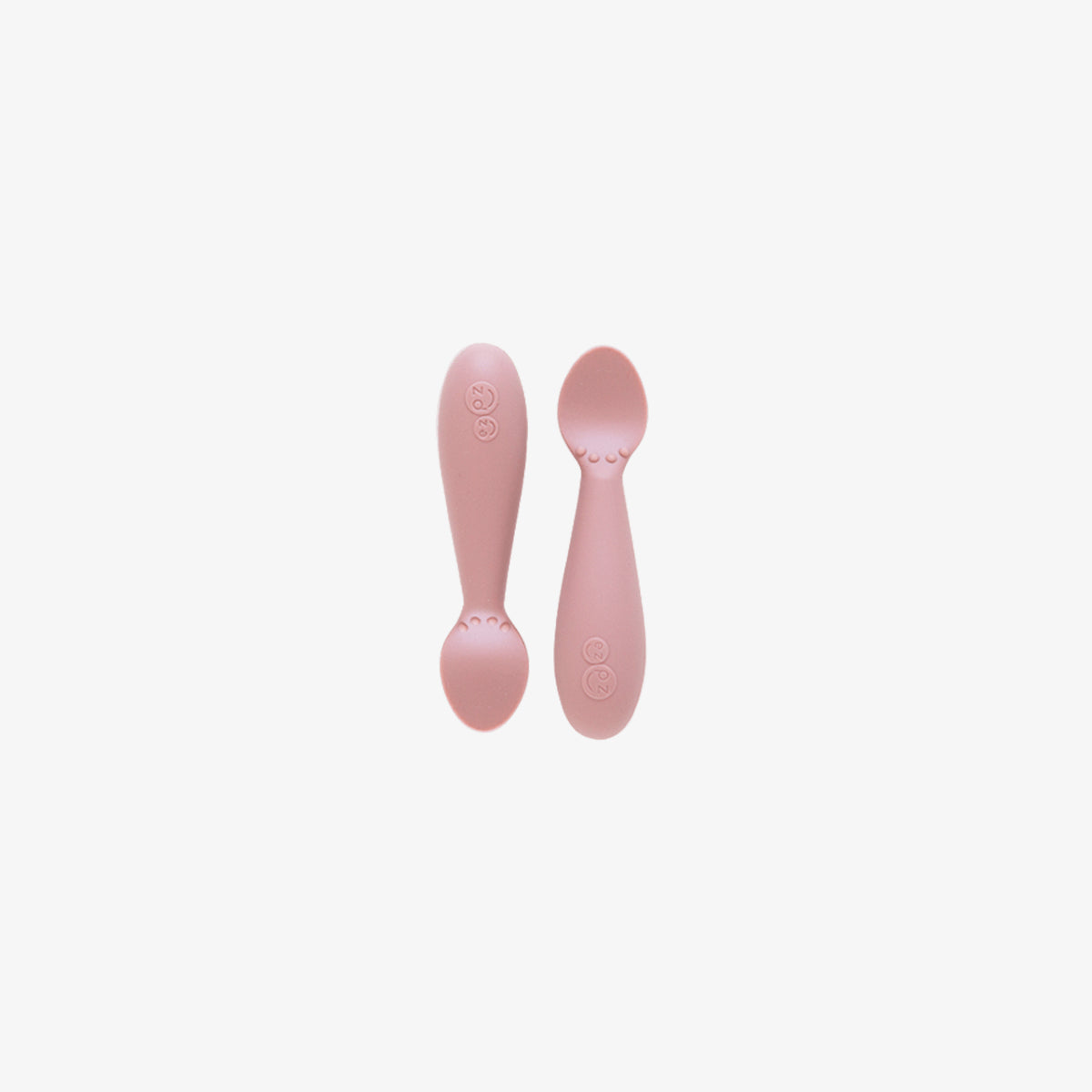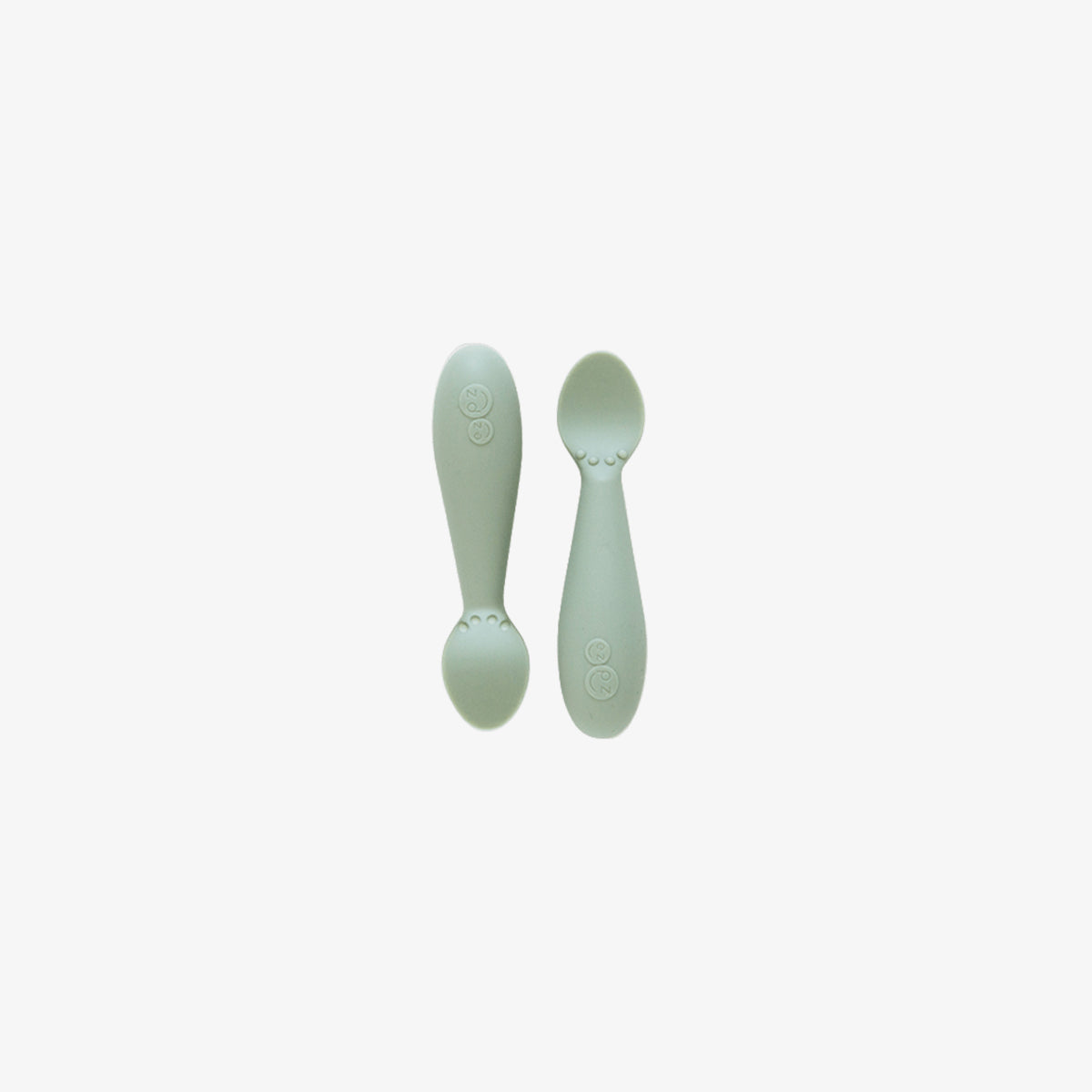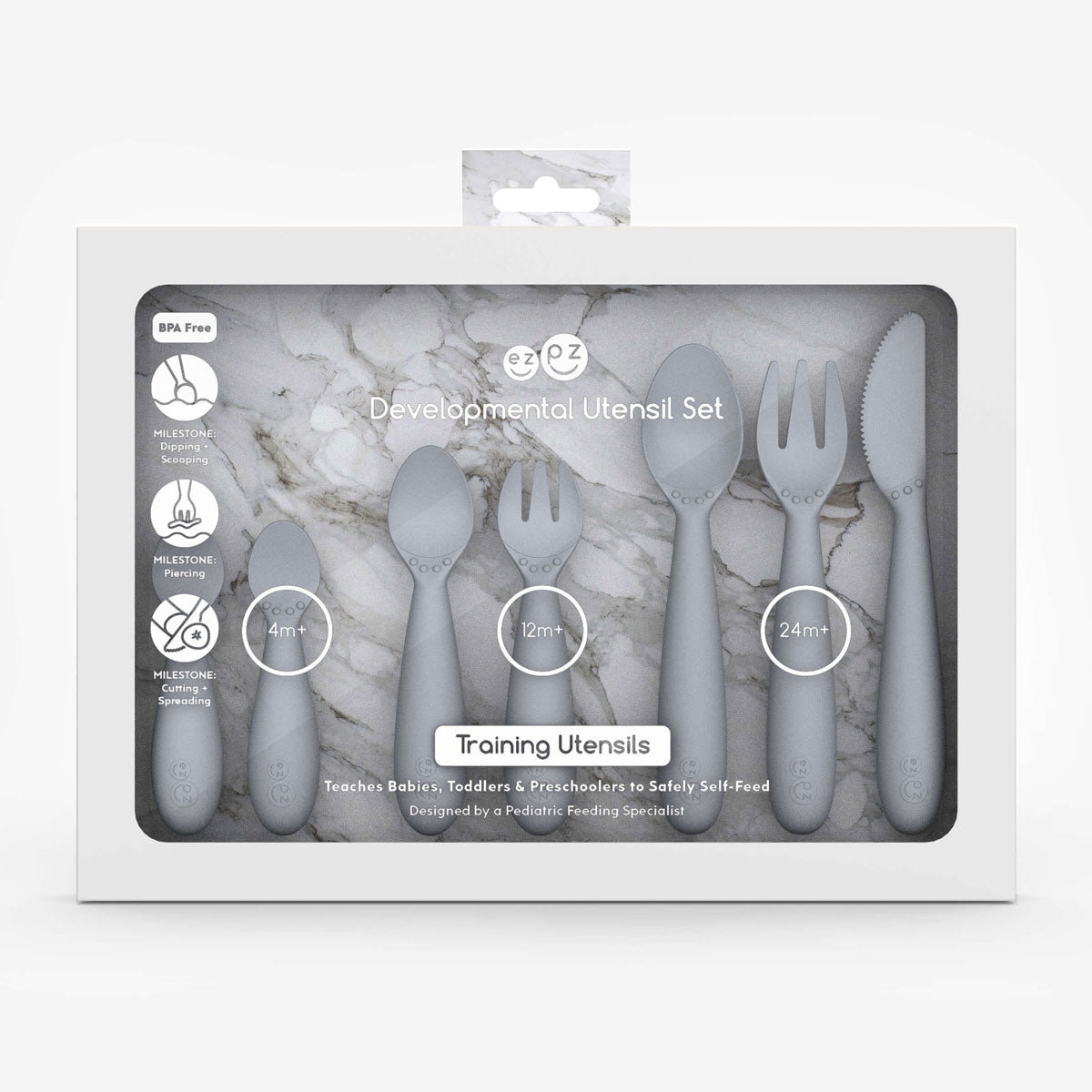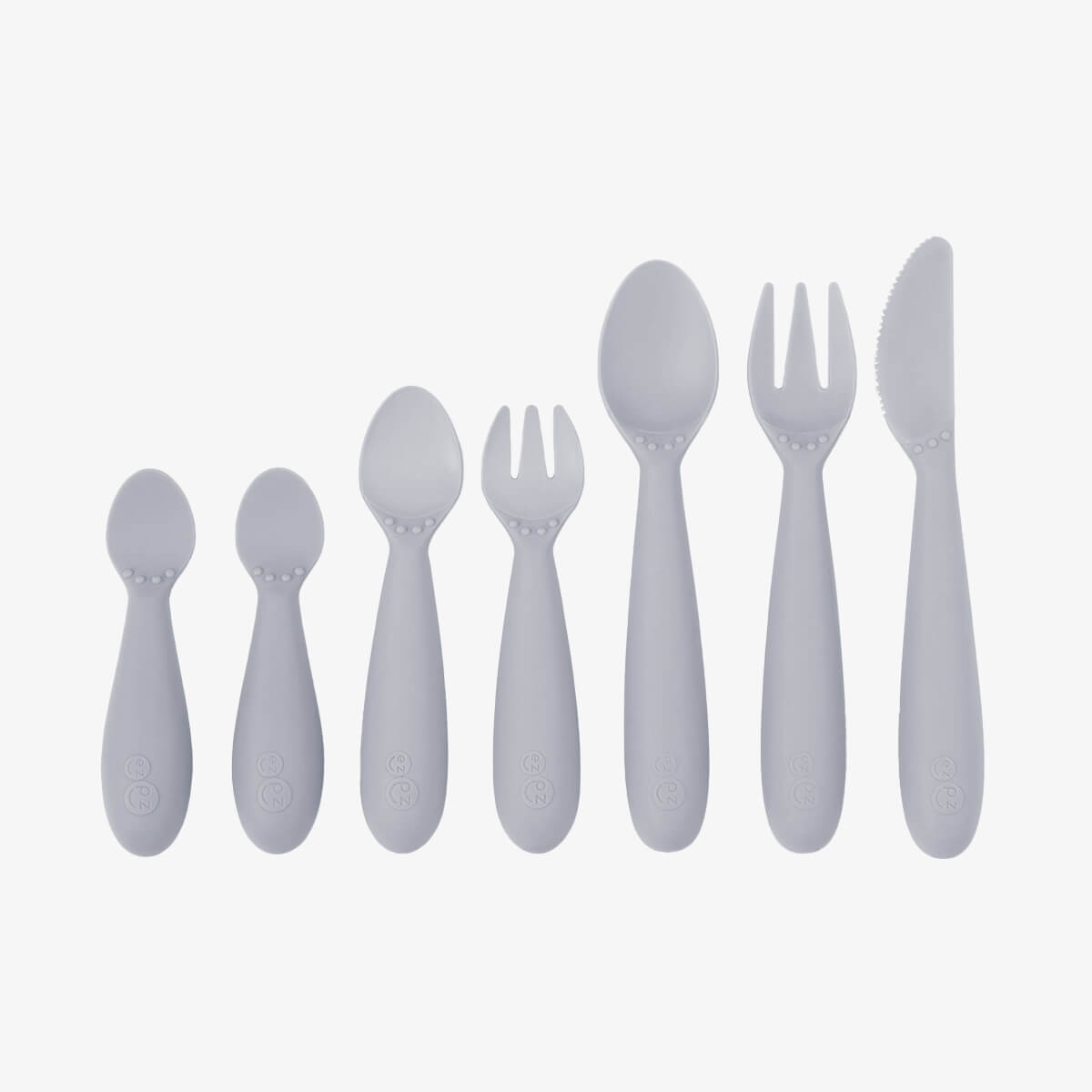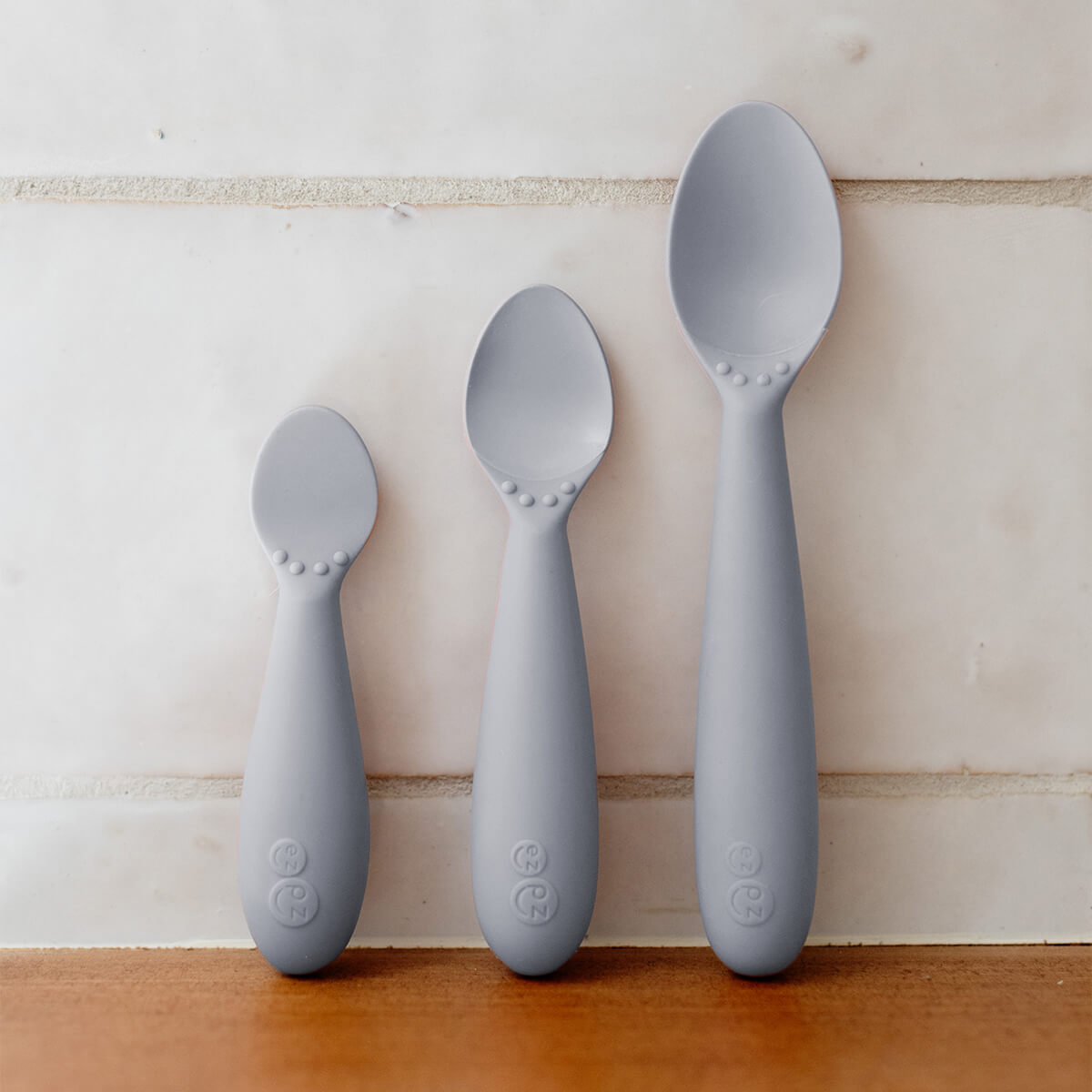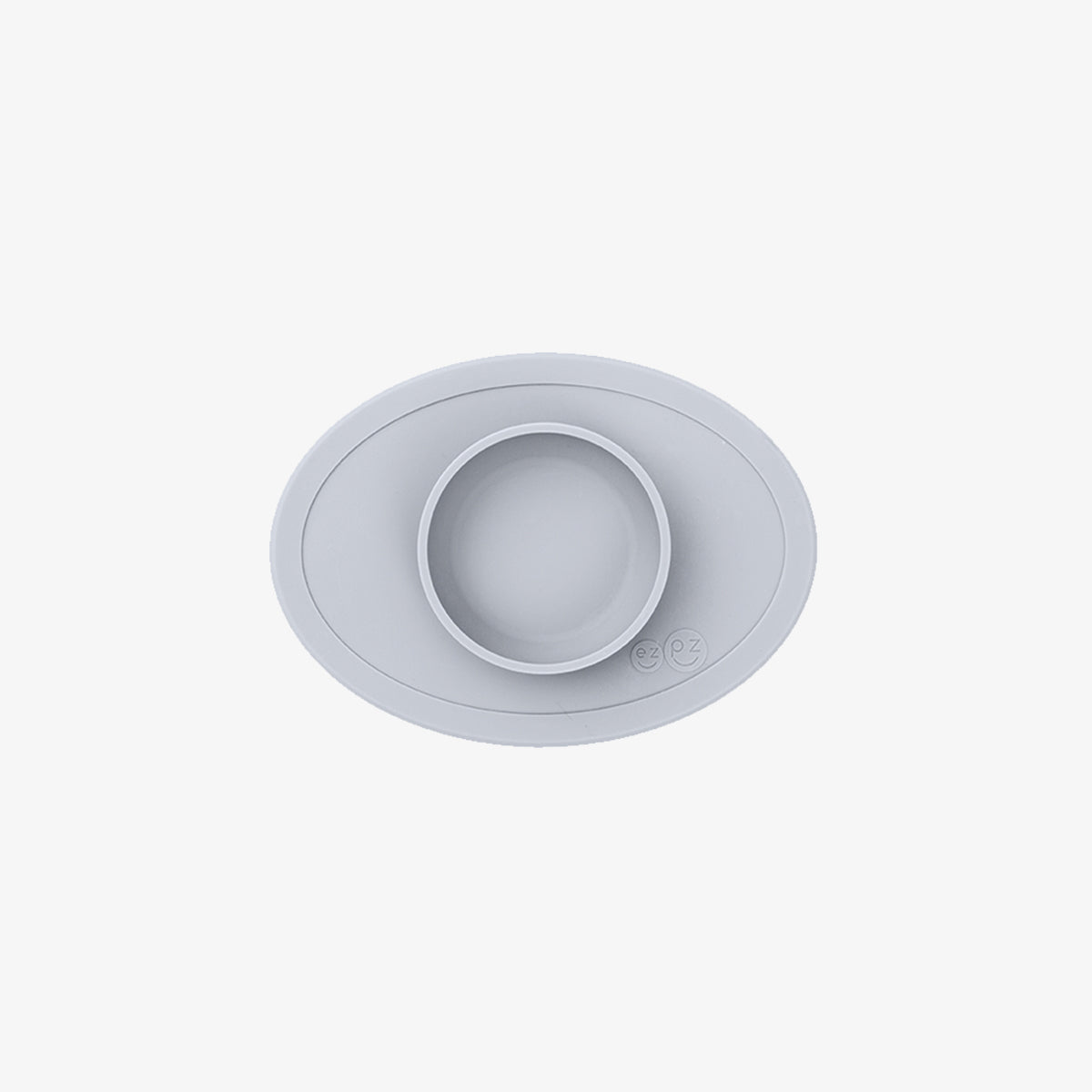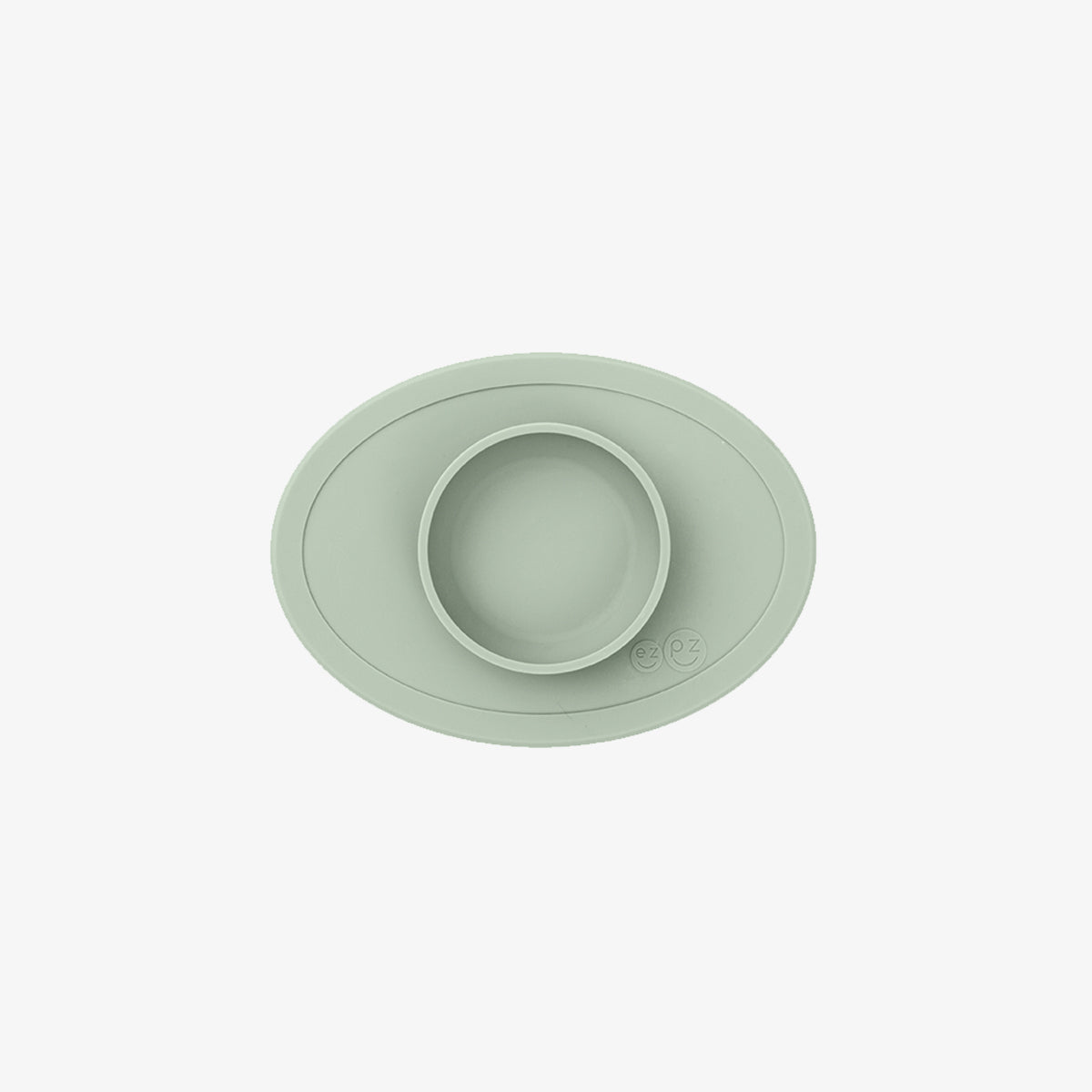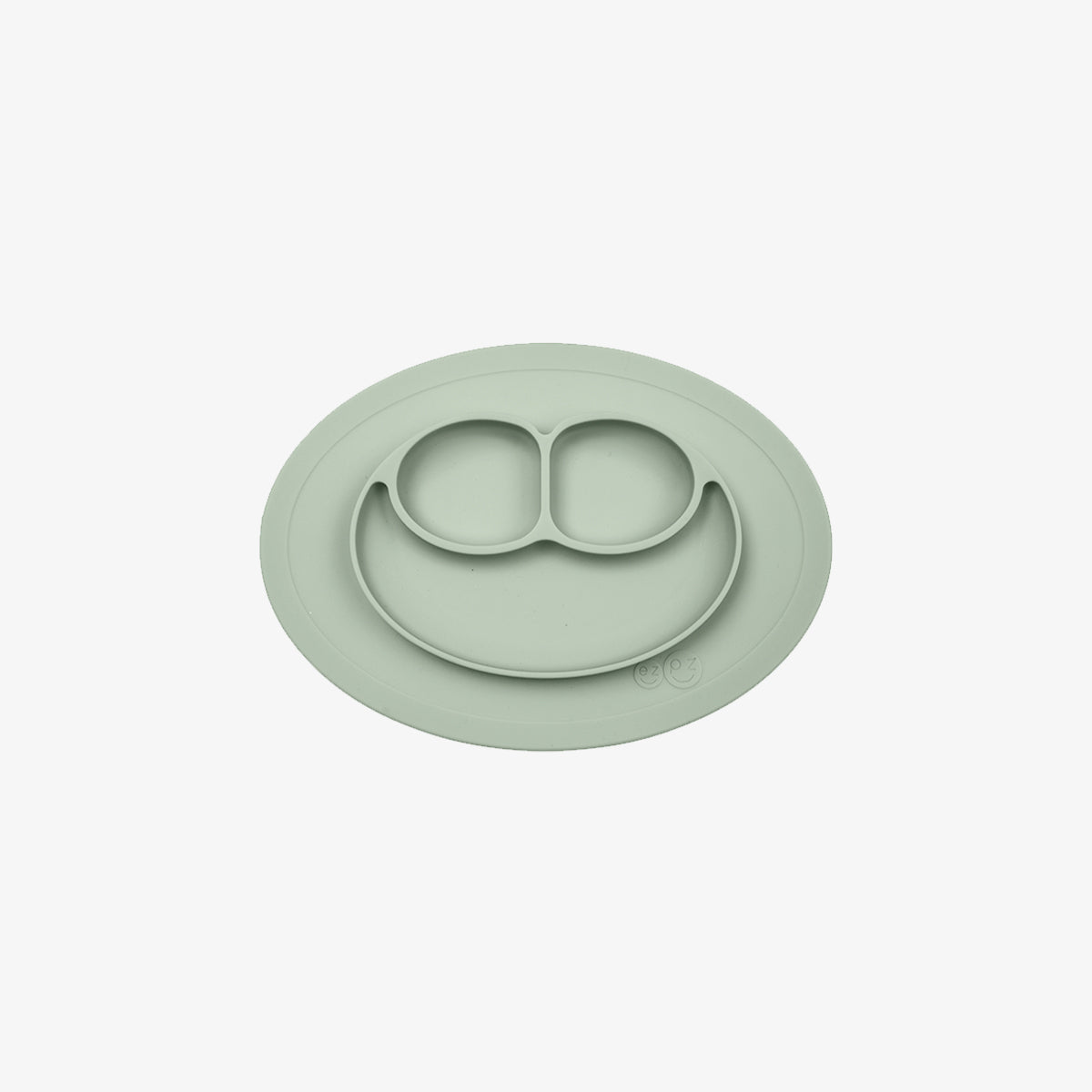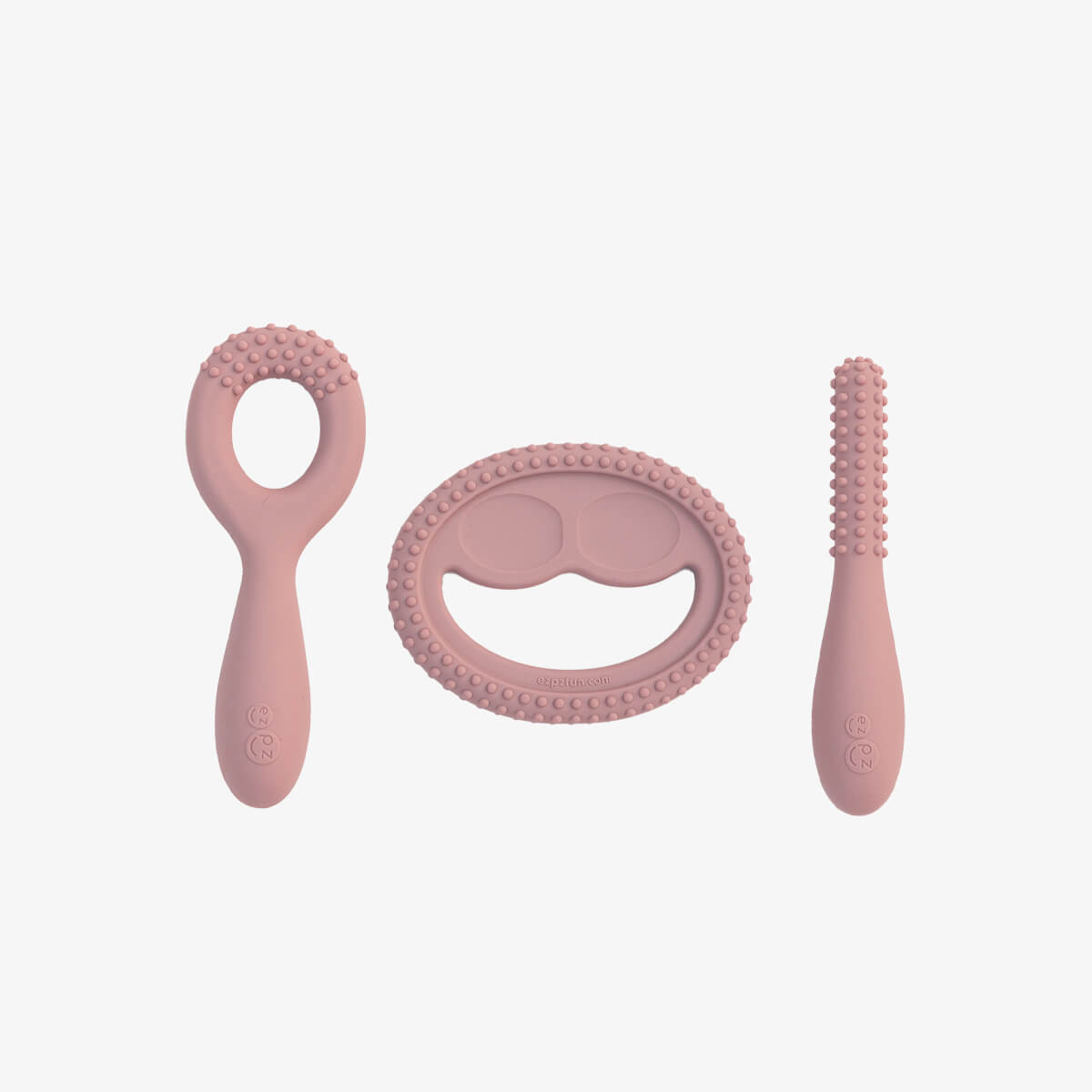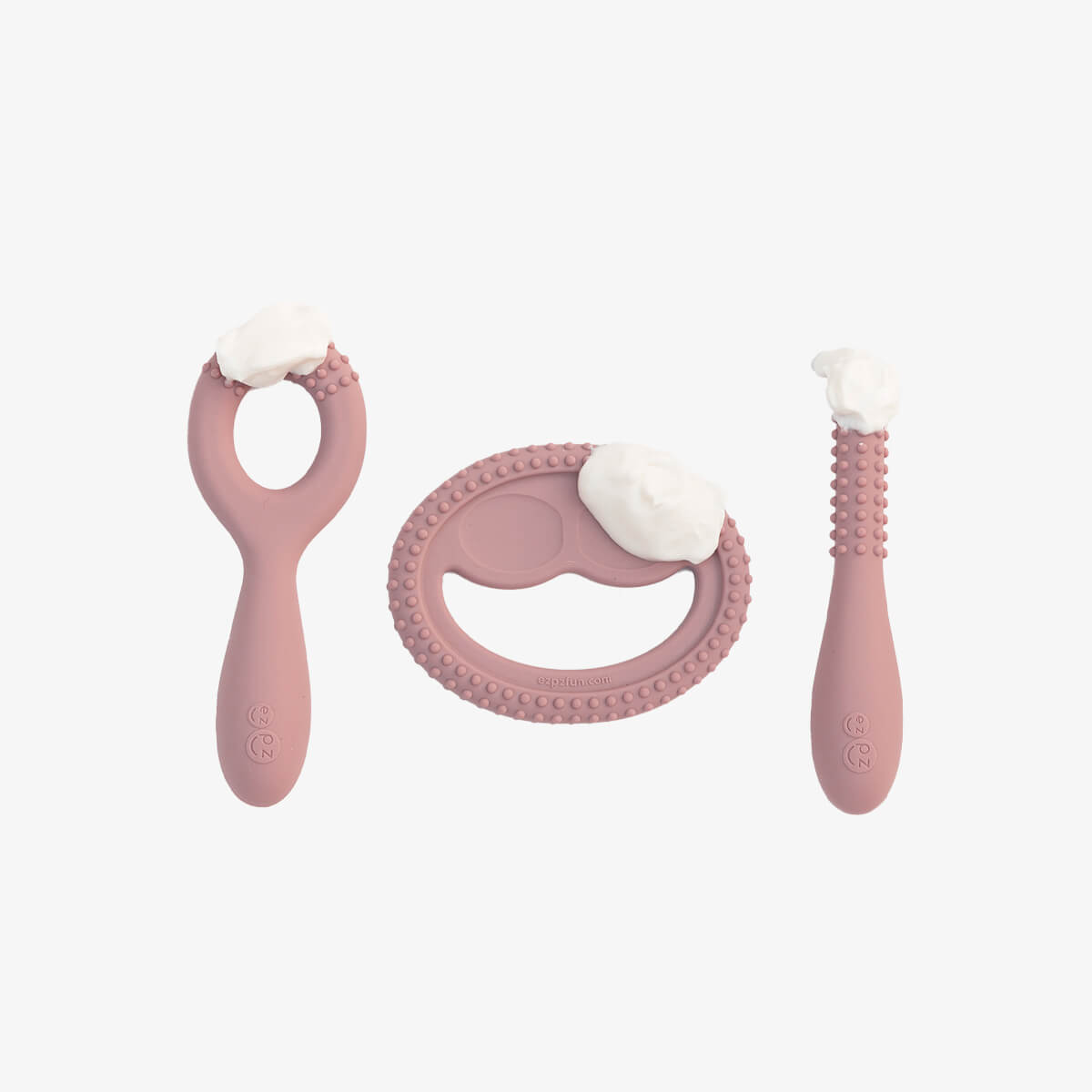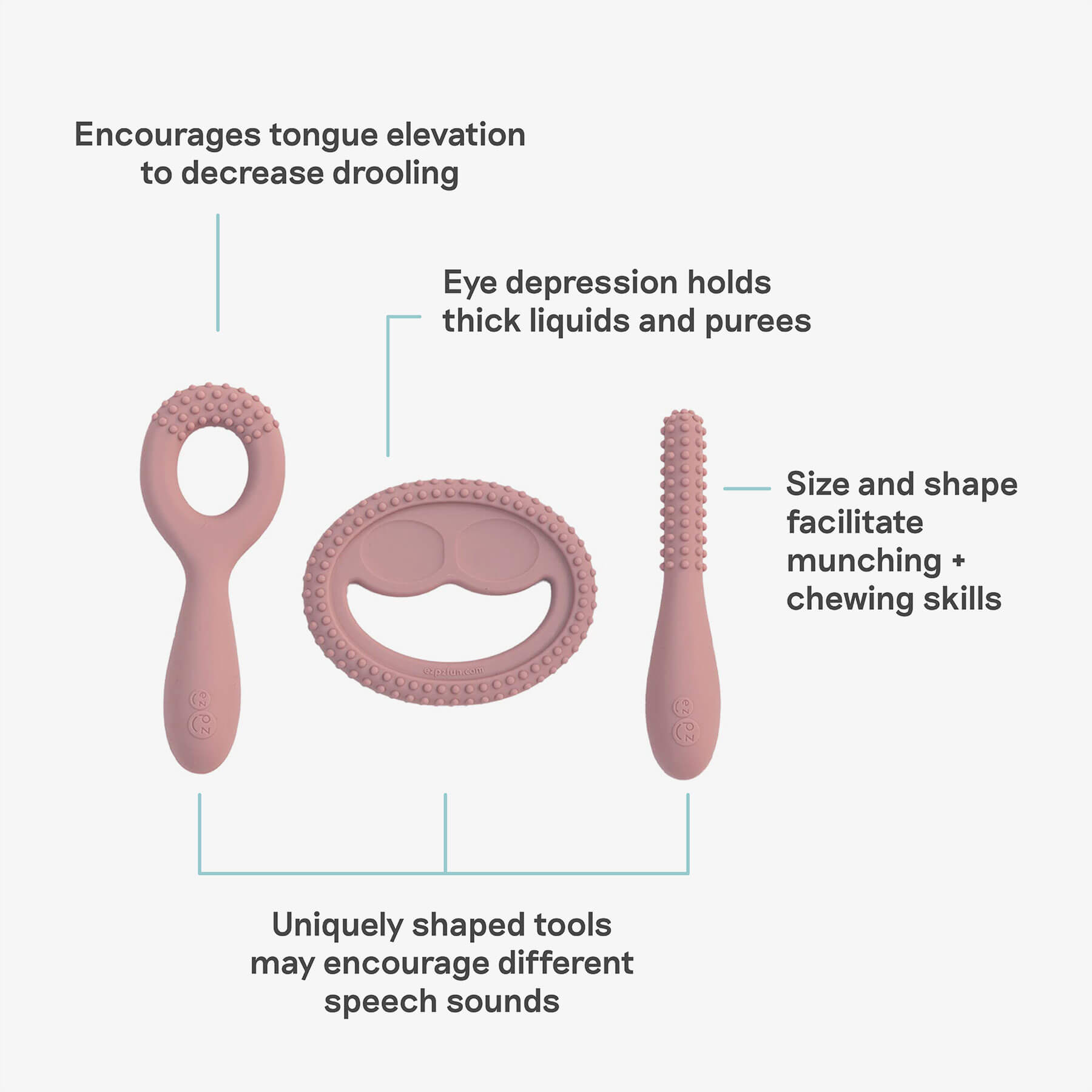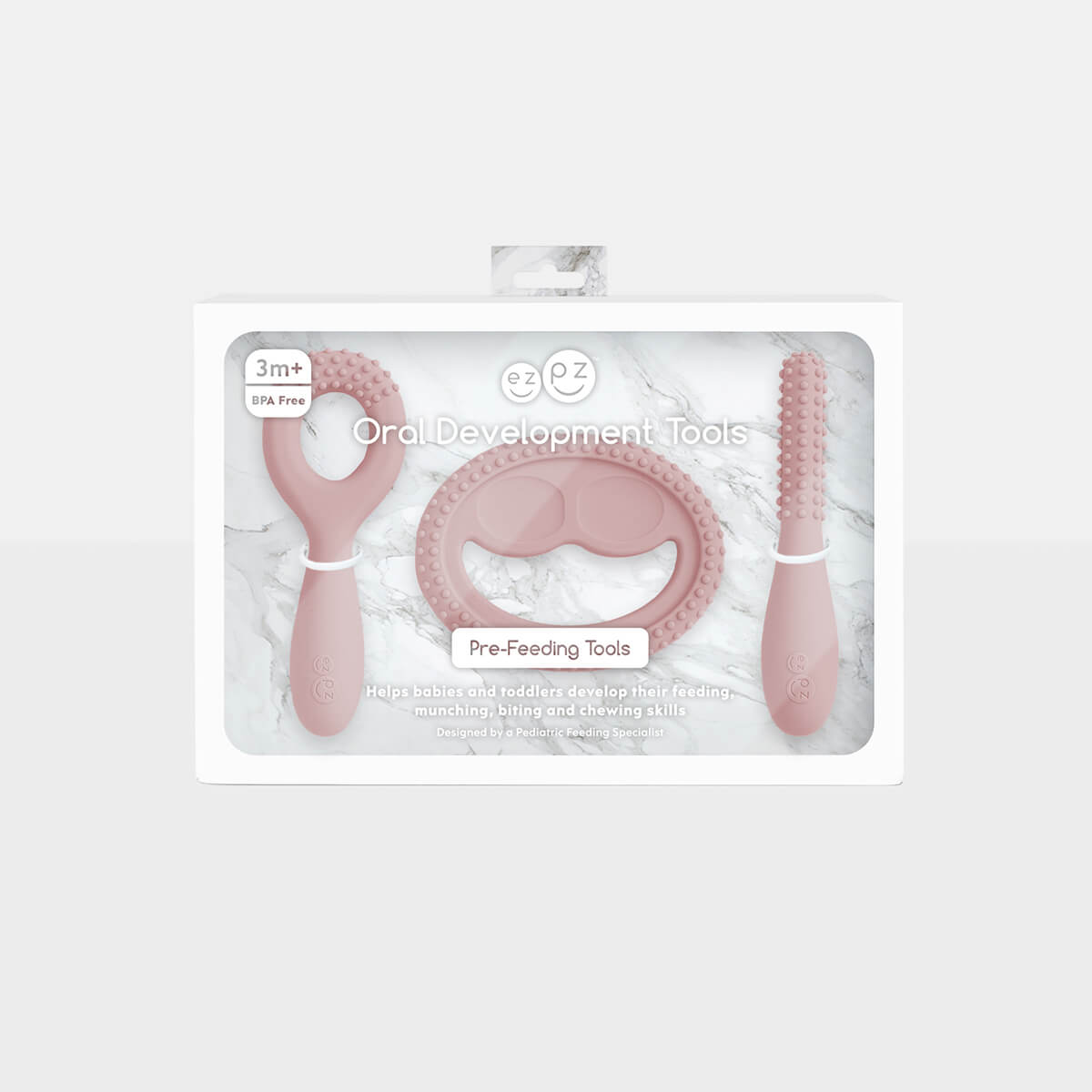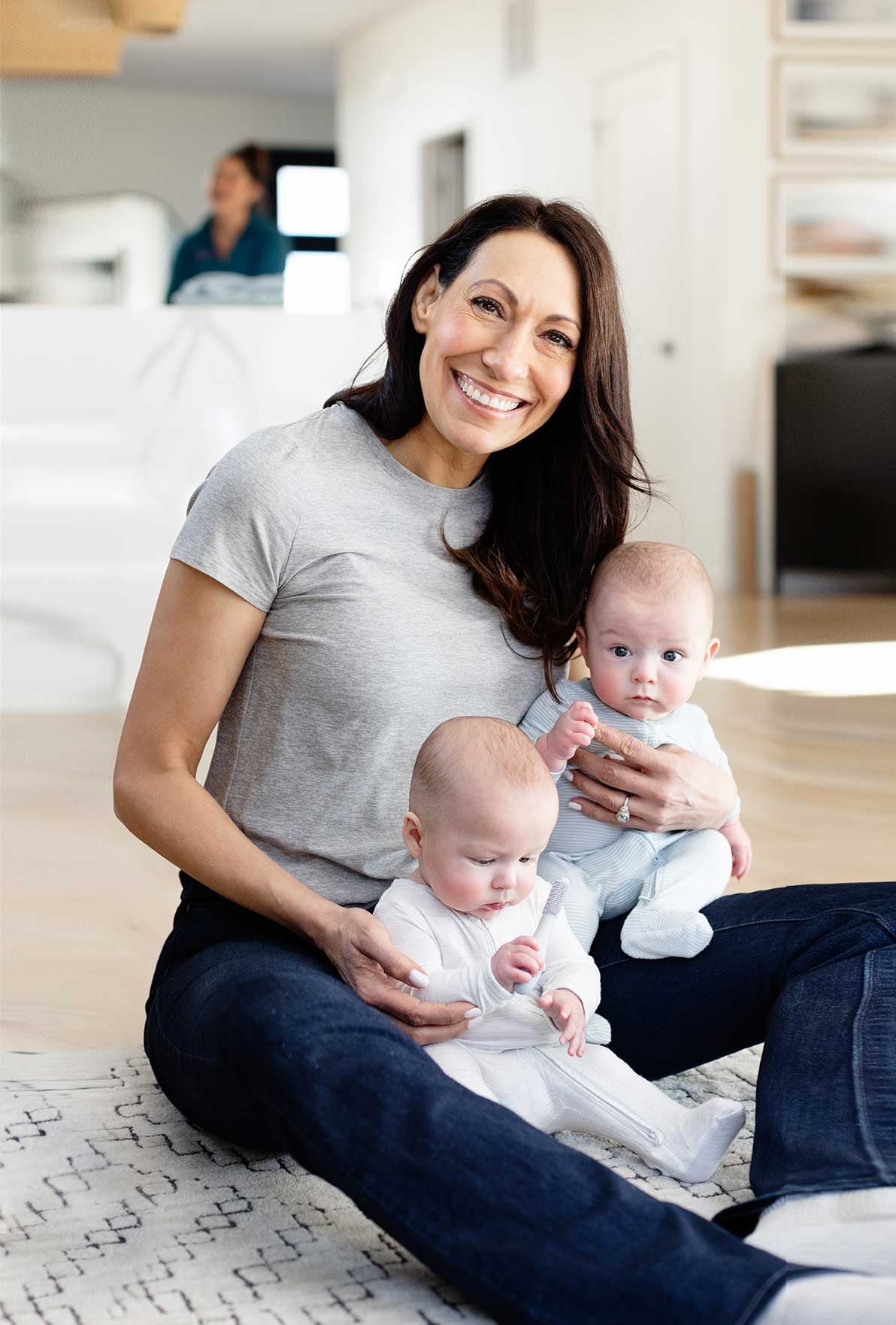I encourage parents (and therapists) to be flexible and follow baby’s lead when it comes to feeding. You may want to introduce your baby to solids using a specific feeding method (Baby Led Weaning (BLW) or Purees), but ultimately the baby will choose what texture to eat and what texture to refuse. With this in mind, it is important to choose a first spoon that will work for BOTH feeding methods. This saves you money (by not having to buy several different spoons) and will help baby transition from one texture to the next without ‘spoon confusion.’ Here is how the ezpz Tiny Spoon can help with feeding skills like dipping and scooping.
Dip + Scoop: Some spoons are designed for dipping and others are designed for scooping. Choosing a spoon that can do both makes it easier for babies to learn to eat independently. The Tiny Spoon is perfect for dipping, as the spoon has sensory bumps that will hold onto purees. And the angled spoon bowl allows early learners to practice scooping as well!
Introducing Dipping: This stage in spoon-feeding helps baby to learn about feeding independence. Dipping usually begins around 9 months of age, but I often see 6-month-old babies master this skill if they have the opportunity to try it! Here is some advice on teaching your little one the art of dipping:
- Preload Spoon: Dip the spoon into the food and hand your baby the spoon. If baby is ready for solids, baby will grab a hold of the spoon and start the hand-to-mouth movements of independent feeding. Continue to preload the spoon with food, showing baby how you are dunking the spoon (not scooping). Don’t be surprised if baby wants to do this motion with you. You can have baby hold on to your hand while you dip, or you can hold on to the spoon and do it together. This helps baby with the motor planning of dipping, which will help them learn faster!
- Practice: After you have worked on preloading the spoon for a few meals, place the spoon into the bowl of food and leave it for baby to grab. When baby grabs the dipped spoon, eats the food, and then re-dips for more food you have an independent dipper! If baby cries, becomes frustrated or does not grab the dipped spoon, just continue with preloading the spoon and handing it to baby. Don’t worry; your little one will let you know when they are ready to do the dipping themselves.
Introduce Scooping: The next stage in spoon-feeding is scooping. This skill usually begins a few months after baby starts dipping. Developmentally, this occurs anywhere between 11-18 months of age, but again I’ve seen babies as young as 8 months of age scoop easily when they have the right spoon! Here are tips for teaching baby how to scoop:
- Bowl: The key to developing the scooping skill is having the right bowl. I like to use the Tiny Bowl in feeding therapy, as it suctions to the table (or highchair tray) and makes it easier for baby to be successful. Baby can focus on using the spoon with their dominant hand while using their non-dominant hand to hold on to the edge of the Tiny Bowl. That means improved balance and safety!
- Repetition: Position yourself behind baby and practice my hand-under-hand (having your hand under baby’s hand to gently guide the spoon) scooping technique. At first, you may be doing all the scooping, but after a couple of turns, baby will happily take over! If baby doesn’t get it the first time around, it’s okay; repetition and having fun is key.
- Mess-Free Meals: Mess-free spoon-feeding doesn’t occur until around 18 months, so be patient during this scooping process. Products like the Mini Mat will help keep the mealtime mess to a minimum while you endure the wait.
- Next Steps: Hand-to-mouth skills change as baby grows, and so should their utensils. The ezpz Developmental Utensil Set consists of the Tiny Spoons (for infants), the Mini Utensils (for toddlers) and the Happy Utensils for (older toddlers / preschoolers). This collection sets you up for utensil success from 6 months of age to 5 years old. Score!
Want baby to look chic for your mealtime pics? Snag a matching Munch & Meal Bundle (the Tiny Spoon, Cup and Bowl + Oral Development Tools in our stylish colors). Show off your color preference by using our hashtags #ezpzfun #tinyspoons.
